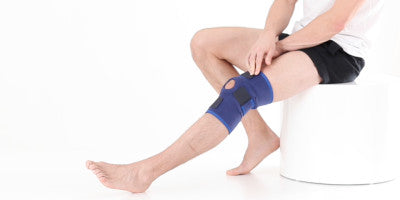How to prepare for surgery
Preparing for surgery, minor or major, elective or otherwise, can be a daunting experience. With the right information and planning, you can approach your procedure with confidence and peace of mind. Whether you're facing a minor outpatient procedure or a major operation, understanding what to expect and how to prepare can significantly impact your recovery and overall outcome.
This guide will walk you through the essential steps to take before surgery, ensuring you're physically and mentally ready for the journey ahead.
Understand Your Procedure
Before undergoing surgery, it’s essential to have a clear understanding of the procedure. This preparation begins with open communication between you and your healthcare team.
During consultations, ask for an explanation of the purpose of the surgery and what the procedure is designed to achieve. Ask for a timeline that leads up to and goes beyond the surgery. Understanding the before, during and after, including typical recovery time, helps reduce anxiety and sets realistic expectations for your recovery.
However, it is important to understand that recovery times can change, sometimes for reasons that only become clear once the procedure has begun. Continue to have an open and honest dialogue with your healthcare team following your procedure, as they will be able to advise and adjust the recovery period as required. Do not become disheartened if this takes longer than originally expected.
Generally though, don't hesitate to ask questions. It's essential to feel informed and comfortable with the upcoming procedure. Consider bringing a list of questions to your appointments and taking notes during discussions with your healthcare team.
You’ll also be scheduled for some sort of preoperative assessment. This is a vital part of surgical planning, where your overall health is evaluated to identify any potential issues that could affect the outcome. The assessment typically includes a review of your medical history, including chronic conditions, previous surgeries, and current symptoms. This may also include a medication review if relevant. If you take any, make sure to tell your healthcare team about all prescription and non-prescription medications, supplements, and herbal remedies you currently take. Some may need to be stopped or adjusted prior to surgery to minimise risks.
This assessment will also include a physical examination to assess your general health and readiness for surgery. That may include diagnostic tests, such as bloodwork or imaging to give your surgical team a comprehensive view of your physical health status.
Optimise Your Health Before Surgery
Your body needs to be in the best shape possible to handle surgery and recover well. If your surgery is several weeks away, it’s a good time to assess your diet and make positive adjustments.
- Eating a healthy, balanced diet in the run up to and after surgery can support tissue healing, immune function, and energy levels
- Focus on including lean proteins, such as chicken, fish or legumes, as they’re essential for wound healing and healthy cell regrowth
- Also look to add vitamin C-rich foods, such as oranges and peppers, as they boost your immunity and help with collagen production
- Whole grains and healthy fats will provide sustained energy
- In addition, good hydration is critical all the way through the surgery journey. Drinking plenty of water will support your circulation and organ function.
As you get closer to the day of surgery, it is important to follow any fasting instructions you may have been given. You may be asked not to eat or drink for a certain period before surgery. Always follow the exact timing given, as failing to do so could delay your procedure.
If possible, engage in light to moderate physical activity in the lead-up to surgery. This improves your cardiovascular health and helps strengthen your heart and lungs, maintain mobility, and improve your body's resilience. Activities like walking, stretching, or gentle yoga can be particularly beneficial. Speak to your healthcare provider about what's safe based on your condition.
If you do smoke, you should stop. Smoking significantly increases the risk of surgical complications, such as infections and poor wound healing. Stopping smoking before your surgery will improve oxygen flow and recovery time.
You should also avoid heavy alcohol use in the days before surgery, as it can interact with anaesthesia and affect your immune system. Be transparent with your medical team about any medications or supplements you’re taking as they may need to adjust or stop certain ones before your operation.
Prepare Your Home for a Smooth Recovery
One of the most important things you can do ahead of surgery is to prepare your home in advance for your recovery. Don’t leave this until the day of your operation, instead, set things up at least a few days before so you can return to a calm, organised, and safe environment.
Start by creating a recovery area where you’ll spend most of your time resting. Set up a space with easy access to essentials such as
- Your medications
- Water
- Healthy snacks
- Entertainment like books, magazines, or remote controls.
Try to keep everything you use frequently within arm’s reach to reduce unnecessary movement, especially in the first few days after surgery.
If your mobility will be limited, it's important to make your home as safe as possible. Remove tripping hazards by clearing walkways of loose rugs, electrical cords, and clutter.
Additionally, think ahead with meal planning. Prepare and freeze a few nutritious meals before your surgery so you won’t have to worry about cooking while you’re healing. Stock up on easy-to-prepare foods, or arrange for support from friends and family if needed.
A little preparation goes a long way in making your recovery smoother, safer, and more comfortable.
Plan for the Day of Surgery
Being well-prepared for the day of your surgery can ease stress and support a smoother experience.
Start by arranging time off work and making sure you have someone to take you to and from the hospital, especially if you're having a procedure that involves sedation or anaesthesia. It’s also wise to plan ahead for your return to work, taking into account the expected recovery period your healthcare provider has outlined.
If you're staying overnight, pack a small hospital bag with essentials like:
- Loose, comfortable clothing
- Basic toiletries
- Something to help pass the time—such as a book, headphones, or a phone charger.
Try to keep things simple and leave valuables at home.
On the morning of your surgery, remember to remove nail polish, jewellery, and body piercings, as these can interfere with monitoring equipment. You may be asked to shower before your surgery. You may also be asked to avoid wearing makeup, lotions, or perfumes, which can impact sterile environments or adhesive equipment.
Taking care of these small details can help your surgical team focus fully on your care.
Mental and Emotional Preparation
Preparing for surgery isn’t just about physical readiness; it’s also important to take care of your mental and emotional well-being. Feeling anxious before a procedure is completely normal, whether it’s concern about the surgery itself, the recovery process, or being away from your usual routine.
Try to manage this anxiety through simple techniques like deep breathing exercises, mindfulness, or meditation. Even a few minutes a day of calm, focused breathing can help lower stress levels. For those with deeper worries or recurring anxiety, speaking with a counsellor or therapist can provide valuable coping tools and reassurance.
In addition, don’t underestimate the power of a strong support system. Talk openly with friends and family about how you’re feeling. Sometimes, simply sharing your concerns can make them feel more manageable.
Ask for help where you need it, whether that’s with logistics, emotional encouragement, or just having someone to check in on you. Knowing you’re not alone can provide a deep sense of comfort and confidence as you head into surgery.
Support Your Wound Recovery with Opti-Heal
One of the most critical aspects of post-surgical recovery is effective wound care. How you care for your surgical site can significantly impact healing time, the risk of infection, and the appearance of scarring. As more people take greater responsibility for managing their own and their family’s health at home, self-care should never mean less care, especially when it comes to post-surgical wounds.
That’s why we at Neo G have developed Opti-Heal Advanced Woundcare; a range of hospital-grade dressings designed for use at home. Whether you're being discharged from surgery, recovering from a procedure as an outpatient, or caring for a loved one, Opti-Heal makes clinically proven, medical-grade wound care accessible outside of the hospital setting.
These advanced dressings offer the same level of protection and healing support as those used in professional healthcare environments, helping to prevent infection, minimise scarring, and accelerate recovery.
Improving access to quality wound care is more important than ever. Opti-Heal empowers individuals with the tools to manage their recovery confidently and safely, ensuring that post-surgical healing is supported with the highest standard of care, even from the comfort of home.
How Does Opti-Heal Work?
Opti-Heal Advanced Woundcare silicone dressings are designed to support post-surgical healing by providing hospital-grade dressings suitable for home use. These dressings create a moist environment that accelerates healing, reduces pain, and minimises scarring.
A key feature of Opti-Heal silicone dressings is their ability to remain in place for up to seven days, which significantly reduces the need for frequent dressing changes. This not only lowers the risk of infection by limiting exposure to external contaminants but also lessens the discomfort and stress associated with repeated dressing removal and application.
The design of Opti-Heal silicone dressings includes a vapor-permeable and showerproof polyurethane film, an absorbent non-woven fabric layer, and a perforated silicone wound contact layer. This combination ensures that the dressing adheres securely to the skin without sticking to the wound itself, allowing for gentle removal and repositioning as needed. The high absorbency of the pad helps manage wound exudate effectively, maintaining an optimal moisture balance that is crucial for efficient healing.
By enabling extended wear time and providing a protective barrier against contaminants, Opti-Heal dressings offer a convenient and effective solution for recovering from surgery at home. This approach not only supports faster healing but also empowers you to manage your post-operative care with greater confidence and comfort.
What’s more, the Opti-Heal range of advanced wound dressings has been designed to change with you, as you heal.
At the start of your recovery journey following surgery, your wound site may be producing higher levels of exudate. In order to maintain the optimal moisture level for advanced healing, a dressing with a higher drainage level, such as the Silicone Foam Absorbent Dressing, will be required.
Further along the healing journey, when exudate from the wound site lessens, a dressing with a lower drainage level, such as the Silicone Multi Purpose Dressing, is all that’s needed. The reason for not using the maximum drainage level at all times is so as to not dry out the wound site. Moist wounds heal faster and heal better.
How to Minimise Scars After Surgery
Following surgery, you may be self-conscious about scars that may have formed at the wound site. Using Opti-Heal Advanced Wound Dressings during the initial stages of post-surgical recovery helps maintain a moist healing environment, which is crucial for minimising scarring. However, we have also developed Opti-Heal Silicone Scar & Wound Recovery Strips. They are soft, thin and reusable self-adhesive silicone gel strips, effective for the management of both new and old hypertrophic or keloid scars and closed surgical wounds. They make scars look lighter, flatter and faded.
The Opti-Heal Silicone Scar & Wound Recovery Strips are suitable for cleaning with plain soap and clean warm water, allowing each strip to be worn for up to 28 days. This means a pack of three Scar Strips offers up to 12 weeks of scar coverage, far more than single use products. To wash, simply rinse the product thoroughly, removing all traces of soap, a fragrance free soap is recommended. Allow the product to air dry or pat it with a lint free towel before reapplying to the affected area.
They are translucent for easy monitoring of the affected area as it heals. Constructed from silicone they feature gentle removal for easy repositioning and the soft silicone conforms to the body for added comfort and is suitable for sensitive skin. Featuring good adhesion, these scar reducers are suitable for short and long term use and are showerproof for lasting wear, protecting from dirt and germs.
They can ONLY be used on closed wounds, cuts and abrasions, once they have fully closed, to aid in the prevention of hypertrophic and keloid scars.
Preparing for surgery involves more than just the procedure itself; it's about taking proactive steps to ensure a smooth recovery and optimal outcome. By understanding your surgery, optimising your health, planning for the day of the operation, and arranging for postoperative care, you can approach your surgery with confidence.
Remember, your healthcare team is there to support you every step of the way. Don't hesitate to reach out to them with questions or concerns.






































